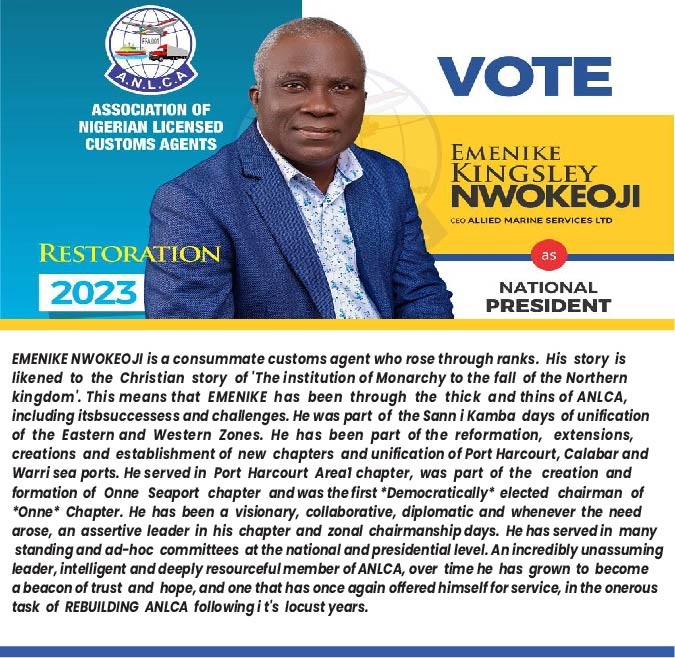Proposed Excise Duty: ‘Defer and Engage’, OPS, Experts’ Tells FG
BY EGUONO ODJEGBA
Manufacturers, consumers, experts and stakeholders have rejected the proposed reintroduction of excise duty on carbonated and soft drinks by the federal government, saying such will trigger undesired multiple negatives, urged government to stay action on the proposal, while it engage relevant stakeholders on the way forward.
The position by producers, consumers and economic analysts were part of recommendation reached yesterday at one-day business discourse organized by MMS Newsmagazine to X-ray the proposed Excise Duty regime on carbonated and non-carbonated beverages by the federal government.
According to the stakeholders, the Nigeria Customs Service (NCS) spearheading the proposal acted in error as they argued that the Customs lacked the mandate to initiate policies, while it urged the federal ministries of finance, trade and commerce, and the legislative arm of government to play by the rules of engagement; and not seek to impose economic actions in military fashion under a democratic dispensation.
In his presentation, the President of Manufacturers Association of Nigeria (MAN), Engr. Mansur Ahmed, said the beverage sector is already struggling under choking taxation, noting that the industry cannot cope with persistent tax increases.
Ahmed who was represented by Mr. Fred Chiazor said “There have been multiple tax increases in recent times – excise duty was increased on alcoholic beverages in 2018 and VAT increased in 2020. Manufacturers also grapple with other challenges such as forex restrictions and currency devaluation.
“The industry faces continued pressure on demand, production and revenues as the COVID-19 pandemic rages on. Many manufacturing jobs are on-site and supply chains are being disrupted, even as consumers reduce spending.”
In particular Ahmed warned that the proposed excise regime could trigger 0.43% contraction in output, promote job losses and lead to galloping inflation; as well as impact GDP downwards, with its attendant multiplicity of spiral negatives across board.
“Introducing excise on non-alcoholic beverages is likely to cause a 0.43% contraction in output and about 40% drop in total industry revenues in the next five years. Excise will significantly increase prices of the products, which will lead to upsurge in illicit trade and counterfeiting due to substitution effect.
“There will be further galloping inflation, occasioning increase in cost of raw materials and overall operating cost, forex shortages; and severe job losses due to closure of companies.”
In addition, the MAN leader said the proposed excise regime may impact negatively on the nation’s sugar master template, even as he faulted the NCS claim that Nigerians are suffering for over consumption of sugar through carbonated drinks.
“Re-introducing excise would be counter-productive to the Federal Government’s Sugar Master Plan. The sugar industry would be hard hit when volumes plummet as a result of excise.
“Nigeria does not have a sugar problem. Available data indicates that Nigeria’s per capita sugar consumption in 2019 is about 8 kilograms, much lower than the global average of approximately 36 kilograms per person and up to 90kg/person in UK and America.”
He continues: “A bottle is considered a major part of a meal for an average individual in Nigeria hence need to be critically evaluated to avoid impacting the most vulnerable people who do not have purchasing power.”
Also speaking at the event, Dr. Ikenna Nwosu of the Nigerian Economic Summit Group (NESG), not only expressed surprise that the proposal is being pushed by an enforcement agency, but demanded that government should disclose the full plan and clearly list sub sectors and products to be affected by the new excise regime.
“The government owes manufacturers the duty to reveal the full list of products been considered for this excise collection. The CG of Customs here have said carbonated waters and others, that is not revealing enough, government should provide a comprehensive list of products and the sub sectors to be affected, so that excesses can be monitored.
“It is also important that our government does not engage in cherry picking in its comparisons, when government says Ghana or South Africa is taxing carbonated drinks, those governments provides the essential infrastructures and support logistics. In Nigeria, producers provide their power, suffers huge financials because of bad roads etc.
“Policy is supposed to be a collaborative effort that is how it is in other climes. The European Union of Excise Movement and Control and the other African countries the Customs have mentioned don’t impose policies, they discuss and agree. Let our government return to the drawing board and dialogue to design.”
Earlier, the Customs CG, Col. Hameed Ali (Retired) represented by the Customs Area Controller of Lagos Industrial Command, Comptroller Monica Shaahu, said the excise regime will affect non alcoholic beverages which will pay both specific rate of N50 per litre as well as advelorem rate of 20% on the value of the product.
She said, “The Finance Act of year 2020 seeks to include the carbonated non-alcoholic drinks to pay Excise Duty considering the health hazards associated with it.
“There is a projection of rise in revenue generation from Excise Duty collection. With the wide production and consumption of carbonated non-alcoholic drinks locally, there is a strong indication that it will trigger a significant revenue rise from Excise Duty when brought under Excise control.
“Besides, bringing the carbonated non- alcoholic and alcoholic drinks under Excise control will cushion the effects of the dwindling oil/ import duty revenue occasioned by global economic response to effects of Covid-19.”
Contributing, the Executive Secretary of Nigerian Shippers’ Council, Hon. Emmanuel Jime said government and the private sector must work together to achieve a national direction. The ES who was represented by the Director Consumer Council, Cadjeta Chuwkuemeka Aju, however noted that excise duty is for local production which has very narrow range on application.
“It has been assumed that the products are harmful to health. It is left for us to chose between looking healthy or making a vibrant economy.
Moderator of the parley, Chairman of the Ports Consultative Council, Otunba Kunle Folarin admonished government and manufacturers to continue to dialogue and not shy away from making compromises that will impact positively on the greater good of the country and its citizens.






